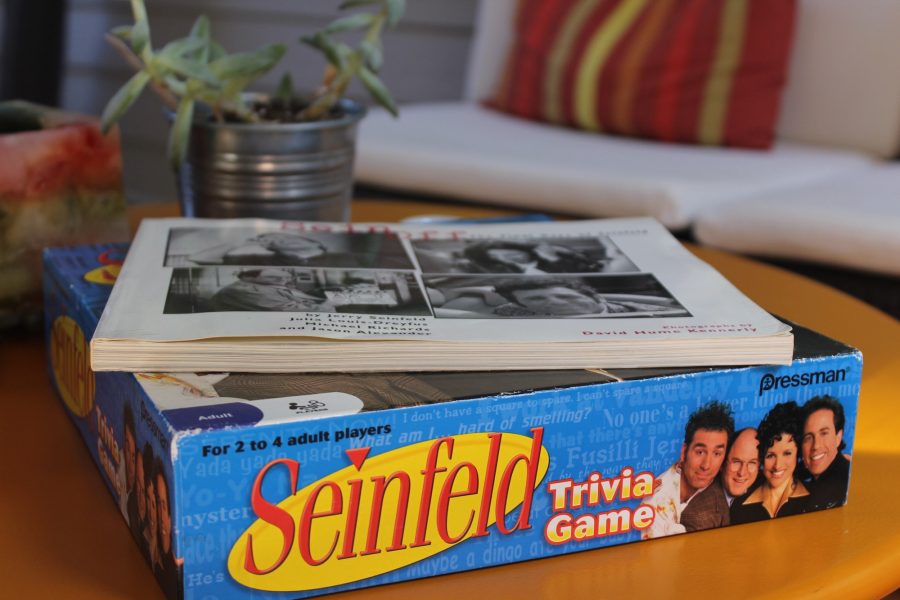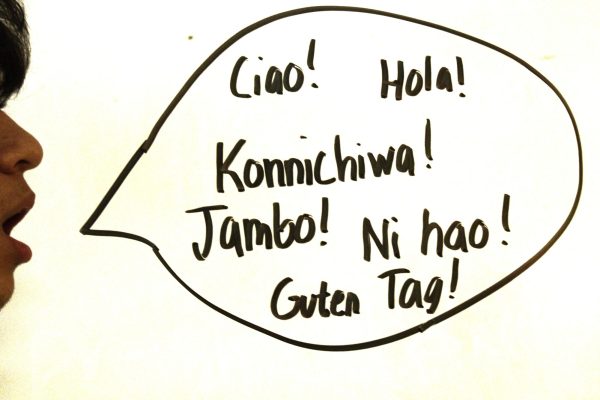Soup Nazi, Festivus for the Restivus, and wearing the Red Ribbon: Seinfeld paved its way for one of the funniest shows ever
Seinfeld‘s humour finds itself in the daily lives of its viewers, whether as inside jokes, relatable situations or on coffee tables.
August 17, 2016
The 90’s consisted of cheesy rock music, questionable fashion styles, and Seinfeld, a show considered a cultural icon and irreplaceable comedy. Seinfeld soared beyond the expectations of critics and completely redefined the satire genre. Though countless humorous series took the spotlight over the years, Seinfeld completely revolutionized the way people speak to one another, look at ordinary objects, and act in certain situations. No television series possessed nor currently possesses the comedic qualities required to reach the caliber and unique humour of Seinfeld.
Strategically slipping in a phrase such as “No soup for you!” or “Serenity now!” comes naturally to any Seinfeld fanatic. I catch myself subconsciously relating current situations to Seinfeld episodes, and surely, most everyone might find themselves in a dilemma in which one of the 180 episodes applies.
Friends and Everybody Loves Raymond gained great success in the 90’s, although neither fit the description of “a show about nothing” and simultaneously turn the heads of 108 million people to the screen when the bouncy bass theme tune comes on.
Peculiar and dryly-humored minds like Jerry Seinfeld’s and Larry David’s function as the outliers who bolster the success of sitcoms in the 90’s. Seinfeld and David’s sitcom managed to qualify as “NBC’s money-maker for most of the 1990’s,” according to Tammy Faye of Time magazine. The Contest, an award winning Seinfeld episode, became characterized as clever and edgy for Primetime on NBC through its well known euphemism, “Master of my domain.” The creativity required to produce such an episode while balancing on the edge of controversy came naturally to Seinfeld and David, while any other producer or comedian in the 90’s simply did not obtain such humorous wisdom and ingenuity.
Seinfeld’s ratings and appeal surpassed all competition in the sitcom industry at the time. Each episode brought forth 1 million dollars of revenue, something unheard of in comedy, film, and NBC history. Even after the show retired, it generated “$3.1[billion] in repeat fees since the final episode,” Adam Sherwin, journalist for The Independent, said.
Anyone with a rational taste in comedy would find true entertainment in the sitcom after Kramer barges through the door in The Pilot for the first time. Seinfeld tends to grasp its viewers through irony, characters, and ability to relate to any awkward situation. In The Chinese Restaurant, the entire episode took place in the lobby of a restaurant, though still managed to implement every single aspect of an exceptional comedy, clearly showing Seinfeld’s and David’s abilities to create something from nothing.
Seinfeld entertains in its own realm of comedy, as a unique sitcom that will never find its match. The beautiful, peculiar concept about Seinfeld may be most accurately defined as “A show about nothing!”, as George Costanza said.

















